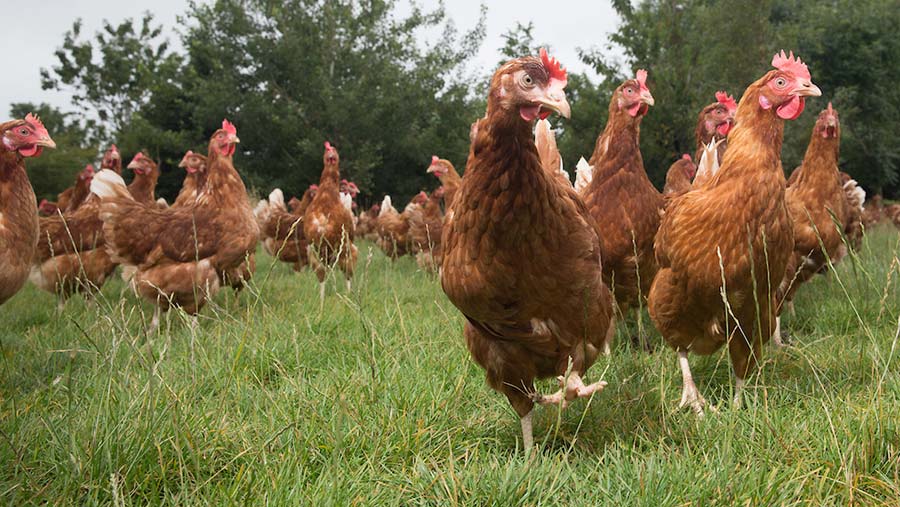Free-range egg contracts slammed for ‘buyer bias’
 © Tim Scrivener
© Tim Scrivener The British Free Range Egg Producers Association (BFREPA) plans to introduce its own model contract for egg producers, to provide a blueprint for members and so encourage packers to improve the terms they offer their suppliers.
The move follows a study by BFREPA and solicitors Birketts of egg contracts, which found the terms of agreement “grossly imbalanced” in favour of buyers.
See also: Why is the dairy industry divided over milk contracts?
In particular, pricing and payment terms varied massively, as did termination clauses which, in some cases, are weighted entirely towards the packers.
The packers whose contracts were examined by Birketts
- Noble Foods
- Fridays
- Sunrise Poultry Farms
- MB Crocker
- John Bowler
- Yorkshire Eggs
- Stonegate
- LJ Fairburn
- C&P Bird
BFREPA chief executive Robert Gooch said the move had been triggered by the collapse in the egg market last year and claims by members that some contracts were not being honoured.
Nine contracts were then sent to Birketts for examination, which made a number of observations:
- Exclusivity: Most of the agreements tend to appoint the supplier on an exclusive basis for specified flock or bird numbers. The terms of these agreements vary between 12 months to “indefinitely, until notice is provided”. The agreements are quite onerous in terms of the obligations being placed on the producers and are very “buyer biased”. They may cover the terms of packing the eggs, the keeping of the birds, what feed must be used, the age of the flock and the eventual sale or destruction of the flock. Another provision relates to the provision of forecasts and what happens if those forecasts are not met. Strict terms are imposed on the producers.
- Pricing and payment: This varies massively between the agreements, and is very one-sided. Title to the eggs passes on collection of the egg. Ideally, title would not pass until payment has been received. Payment terms also vary within the agreements. Though the majority stated that payment was within two weeks, one was based on 28 days. What the producers should be looking for is some consistency, whether it is a minimum price subject to upward variation, or a fixed price for set periods. Worryingly, in some of the agreements the buyer can vary prices at will.
- Duration and termination: The agreements vary in terms of their length and the notice period to terminate. The rights of each party to terminate the agreement should be consistent in any agreement entered into – at the moment it is not. If the buyer fails to make payment when due, then the producer should not be required to keep supplying the eggs.
Birketts also examined “codes of practice” and “egg quality” in contracts, and suggested a standard set of criteria should be produced.
There were also big variations in how eggs are graded and priced – “solely at the discretion of the buyer” – and the levels of warranties and indemnities suppliers had to provide buyers.
‘Confidence’
Mr Gooch said: “Producers have a right to a fair contract that gives them confidence to continue to invest in their businesses.
“Our findings are that contracts are very one-sided in favour of the buyer, which is to be expected when it is the packer offering the terms.”
BFREPA has now written to all 41 packers registered under the Lion Code and invited them to comment by 1 February “so that we can reflect their views too”.
Birketts will then draw up model contracts – one “minimum price” type and one “feed tracker” type – which will be available to members to help them to secure fairer terms when negotiating with customers.
Commenting on the study, NFU chief poultry adviser Gary Ford described the findings as “concerning although not necessarily surprising” as farmers often shoulder much of the risk in their contracts.
“The NFU wants to see farmers have a choice in the contract terms that they sign up to, with a fair balancing of risk and reward.”
